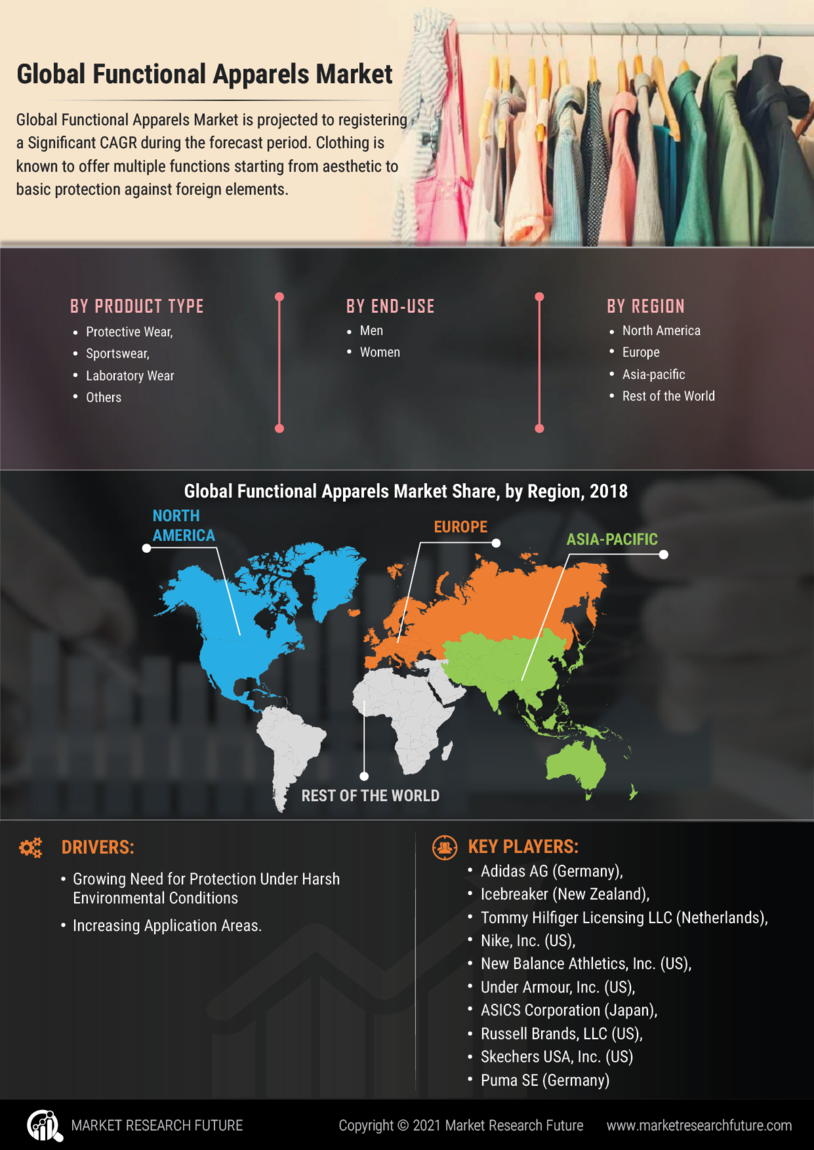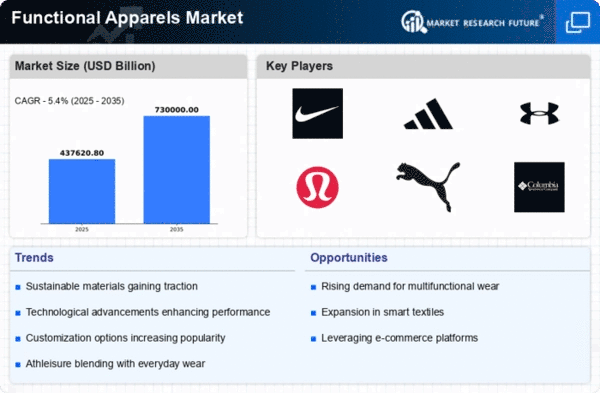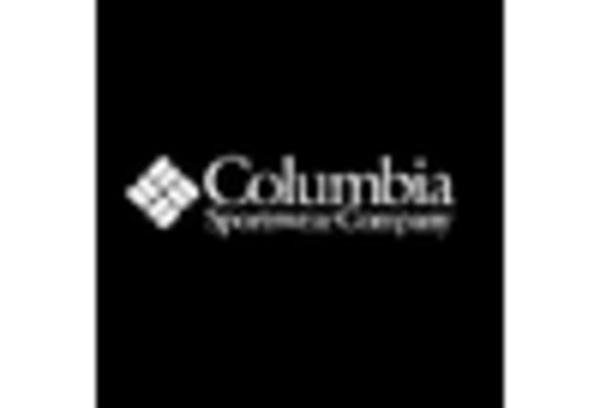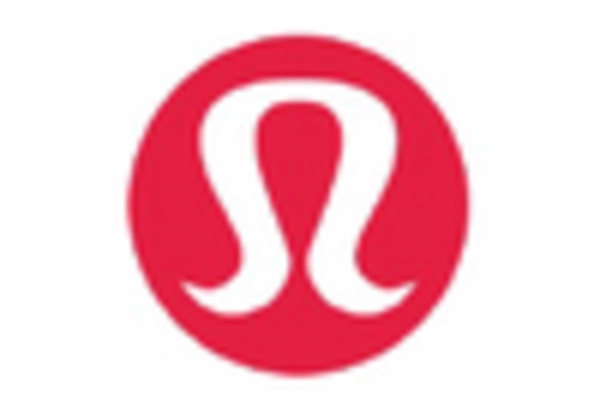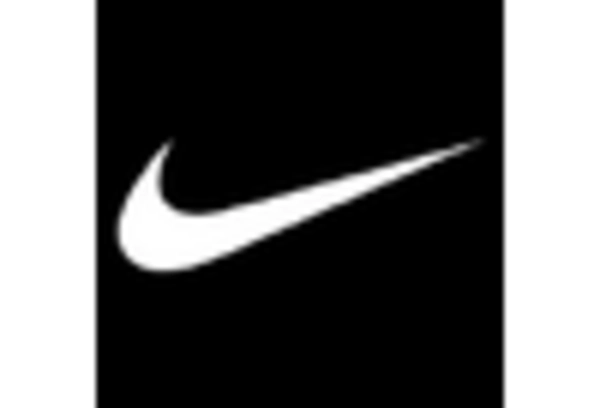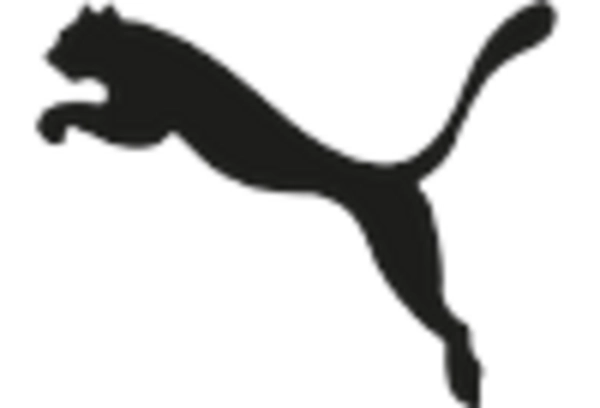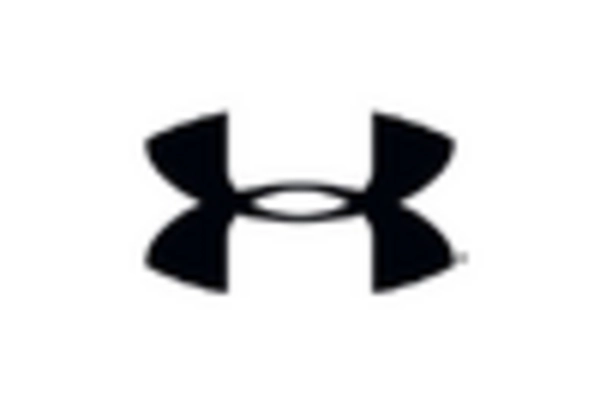Sustainability Trends
The growing consumer preference for sustainable and eco-friendly products is reshaping the Global Functional Apparels Market Industry. As awareness of environmental issues increases, brands are responding by adopting sustainable practices in their production processes. This includes using recycled materials and reducing waste, which appeals to environmentally conscious consumers. The market is expected to witness substantial growth, with projections indicating a rise to 541.32 USD Billion by 2035. Companies that prioritize sustainability not only enhance their brand image but also tap into a lucrative segment of the market, suggesting that eco-friendly functional apparel will play a crucial role in future growth.
Rising Health Awareness
The increasing global emphasis on health and fitness is a pivotal driver for the Global Functional Apparels Market Industry. As consumers become more health-conscious, they seek apparel that supports their active lifestyles. This trend is reflected in the growing demand for performance-oriented clothing that enhances physical activity. For instance, the market is projected to reach 235.94 USD Billion in 2024, driven by the popularity of athleisure and activewear. The integration of advanced materials that offer moisture-wicking and breathability further fuels this demand, suggesting a robust growth trajectory as consumers prioritize both functionality and style in their apparel choices.
Market Growth Projections
The Global Functional Apparels Market Industry is poised for substantial growth, with projections indicating a market value of 235.94 USD Billion in 2024 and an anticipated increase to 541.32 USD Billion by 2035. This growth trajectory suggests a compound annual growth rate (CAGR) of 7.84% from 2025 to 2035. The increasing demand for performance-driven apparel, coupled with advancements in technology and sustainability trends, positions the market favorably for future expansion. These figures underscore the potential for innovation and investment within the functional apparel sector, highlighting its importance in the broader apparel industry.
Expansion of E-commerce Platforms
The rapid expansion of e-commerce platforms is transforming the Global Functional Apparels Market Industry. Online shopping offers consumers convenience and access to a wider range of products, which is particularly beneficial for niche functional apparel brands. The ease of comparing prices and reading reviews online enhances consumer confidence in purchasing decisions. This shift towards digital retail is expected to drive significant sales growth, as more consumers opt for online shopping. The increasing penetration of smartphones and internet access globally further supports this trend, indicating that e-commerce will be a key driver in the functional apparel market's evolution.
Technological Advancements in Fabric
Technological innovations in fabric development significantly influence the Global Functional Apparels Market Industry. The introduction of smart textiles and moisture management technologies enhances the functionality of apparel, catering to diverse consumer needs. For example, fabrics that provide UV protection, temperature regulation, and anti-odor properties are becoming increasingly popular. These advancements not only improve user experience but also expand the market's potential. As a result, the industry is anticipated to grow at a CAGR of 7.84% from 2025 to 2035, indicating a strong future for functional apparel as technology continues to evolve and integrate into everyday clothing.
Influence of Social Media and Celebrity Endorsements
The impact of social media and celebrity endorsements on consumer behavior is a notable driver in the Global Functional Apparels Market Industry. Influencers and athletes promote functional apparel through various platforms, creating trends and driving demand among their followers. This marketing strategy not only enhances brand visibility but also fosters a sense of community among consumers. As social media continues to shape purchasing decisions, brands that effectively leverage these platforms are likely to see increased sales. The dynamic nature of social media marketing suggests that it will remain a critical factor in the growth of the functional apparel market.
